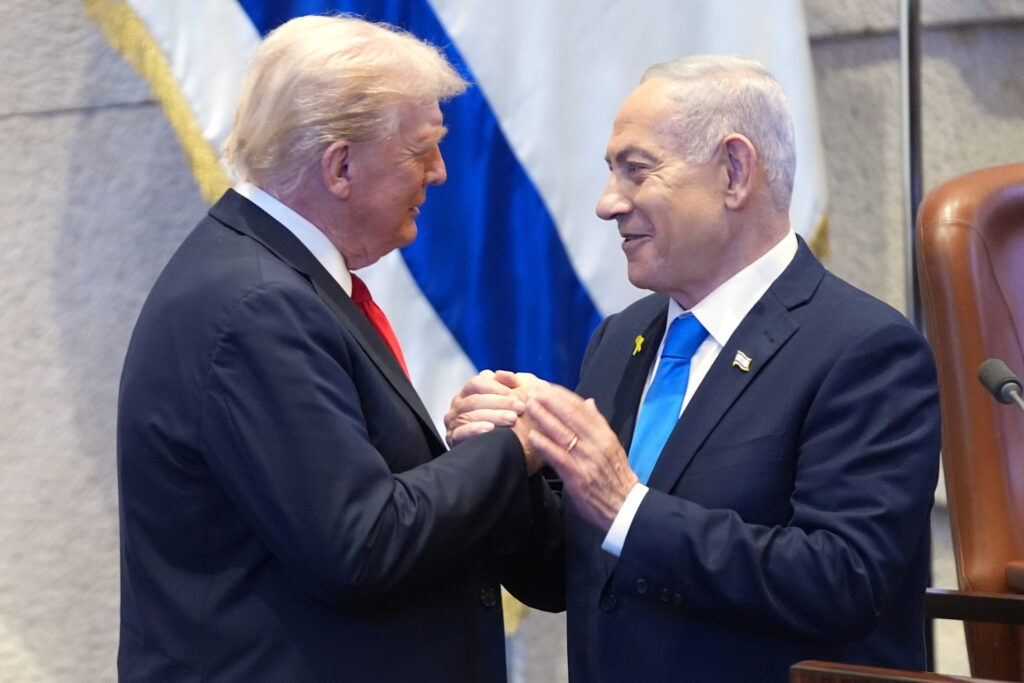The first phase of the ceasefire agreement between Israel and Hamas has passed, but the question now is how the second phase will be implemented or whether it will “stumble” somewhere. The ceasefire agreement between Israel and Hamas faces, according to Reuters, significant obstacles that could undermine Donald Trump’s diplomatic success. According to international analysts, the success of the peace initiative depends largely on the American president’s ability to maintain the support of Israeli Prime Minister Benjamin Netanyahu.
Israel & Hamas agreement: Internal pressures and political challenges for Netanyahu
The disagreements and deliberately ambiguous points of the agreement create serious difficulties in its implementation. Netanyahu is expected to face intense domestic pressure, particularly from the far-right parties of the governing coalition, which may complicate adherence to the ceasefire terms.
With elections approaching, the Israeli prime minister’s stance may change as he seeks to keep his right-wing alliance united. His powerful partners, Ben Gvir and Bezalel Smotrich, have already expressed strong criticism of the agreement with Hamas, with the National Security Minister threatening to withdraw from the government.
The diplomatic challenges
The Israeli prime minister is considered, as Reuters writes, particularly stubborn and a difficult negotiator, characteristics that have been recognized by all American presidents from Bill Clinton to Joe Biden. Even Trump administration officials had expressed displeasure with Israeli operations that contradicted American strategy.
Despite the difficulties, Trump managed to convince Netanyahu to accept the framework for a broader peace agreement. Additionally, he secured the cooperation of other Middle Eastern countries to pressure Hamas to return all Israeli hostages, which was their main negotiating weapon.
Differences and ambiguities in the peace plan
Israel and Hamas remain deeply divided on many issues of the 20-point plan. Netanyahu’s approach may change as he prepares for next year’s elections, trying to maintain the unity of his right-wing alliance.
Nimrod Goren, chairman of the Israeli Mitvim Institute for foreign policy, notes that 2025 is a year where everything is connected to election campaigns and Netanyahu’s calculations can change in favor of his political survival.
Diplomats and analysts estimate that the strength of the peace plan is simultaneously its weakness. The agreement includes many ambiguous points, as neither side has agreed on the details of each term. This ambiguity was crucial for both sides to sign, but the most difficult diplomatic work is just beginning.
Critical friction points and future challenges
One of the basic points of disagreement concerns the demand for Hamas disarmament and its exclusion from any role in Gaza’s future governance. Although the organization generally accepted the plan, its official response does not explicitly mention these terms, while its leaders have implied they expect a role in the future.
John Alterman, Middle East expert at the Center for Strategic and International Studies in Washington and former State Department official, estimates there are many ways the agreement could derail. “One can hardly remember an international agreement that leaves so much for later,” he adds.
Trump’s influence and diplomatic leverage
A senior US official argues that Trump has significant influence over Netanyahu, partly thanks to his steadfast support for Israel on critical issues. In his first term, he officially recognized Jerusalem as Israel’s capital and the Golan Heights as Israeli territory.
“Trump is not trying to maintain equal distances. He has literally stood by Israel 100%. And that’s why he has the ability to guide it in the right direction,” the official states.
According to Israeli pollster Mitchell Barak, who worked for Netanyahu in the 1990s, the prime minister has no choice but to comply with the United States as long as Trump is in the White House.
Change of stance and stricter approach
The American president has a mixed record regarding pressure on Netanyahu. In the past, he provided political cover despite growing humanitarian concerns about the situation in Gaza.
However, in recent weeks he has appeared stricter. He forced Netanyahu to call the Emir of Qatar to apologize for the September bombing that targeted Hamas negotiators. Through pressure, he convinced him to sign the 20-point plan, although the Israeli prime minister had reservations.




